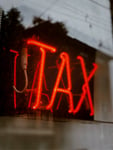In the bustling heart of Thailand, amidst the vibrant hustle and bustle, an economic dance unfolds as the government contemplates fuel price strategies to keep the nation running smoothly. The latest chapter in this financial saga includes pondering an uplift in the diesel price ceiling, from the comforting shield of 30 baht per litre, alongside contemplating a nudge upwards in excise tax reduction on this essential fuel, currently at a modest 1 baht per litre. These whispers of change, delivered by a knowledgeable source, have stirred the air this Tuesday, hinting at the government’s maneuvers to balance economic scales.
Picture it: September last year, the streets of Thailand buzz with the relentless energy of life, vehicles coursing through its veins. Then comes a governmental decree, a gesture of relief — capping diesel at 30 baht per litre, a balm to soothe the financial strains felt by many. This measure, cradled by the nurturing hands of the Oil Fuel Fund (OFFO), was like a lullaby that calmed the nation, reassured it, every three months. But, as with all tales, this one too harbors a looming climax — the expiration date of March 31, with the echoes of extension silenced.
The OFFO, our story’s diligent guardian, eyes the horizon with concern. The fund’s deficit, a dragon slowly waking, is predicted to stretch its wings past the daunting expanse of 100-billion-baht by the time the diesel cap sings its swan song. The gears of thought whirl, seeking solutions, paths to tread that would lighten the load of this formidable challenge.
Let us not forget, diesel isn’t merely a word, but the lifeblood that propels the heartbeats of industry and transportation. Its significance woven into the fabric of Thailand’s economic and daily life is undeniable.
Should the guardians of the economy decide to elevate the diesel cap, the retail price will ascend, albeit gently, by increments of 0.5 or 1 baht, painting a picture of gradual change. This strategy, a chess move designed with the populace in mind, aims to cushion the impact, a testament to the delicate balance between economic necessity and public welfare.
Delving deeper into the OFFO’s vault, a status report dated March 17 casts a light on an impending storm — a deficit of 96.72 billion baht, its shadow split between oil and liquid petroleum gas (LPG) accounts. This financial quagmire, challenging in its complexity, demands a resolution, a way forward.
Hope, however, clings resiliently to the framework of this narrative. The OFFO, with eyes set on the horizon, anticipates a nod of approval for its proposed measures as the curtain falls on the current diesel price cap. A step towards redemption, the fund prepares to embark on the journey of repaying its first debt parcel, a hefty 30 billion baht, come November.
As the tale of Thailand’s fuel economics continues to unfold, one can’t help but be captured by the blend of strategy, stewardship, and the ever-present quest for equilibrium. It’s a story that not only holds the promise of economic stability but also recounts the resilience and ingenuity that defines the spirit of Thailand.


















Increasing the diesel price even slightly will have a domino effect on the cost of living. Everything from transportation to goods prices will surge. It’s an insensitive move given the current economic climate.
I understand the fear of increasing costs, but we also have to consider the environmental aspect. Lower diesel prices encourage more use, which isn’t sustainable. Perhaps this will push more people towards greener alternatives.
Green alternatives are great in theory, but Thailand’s infrastructure isn’t ready for that big of a shift. People and goods still rely heavily on diesel-powered transport.
The OFFO can’t keep covering the diesel price forever, they’re already forecasting a massive deficit. Economically, it’s a tough but necessary consideration to adjust the cap.
Does anyone else think this is just a temporary solution to a bigger problem? We’ve seen fuel price caps before, and yet here we are again. What’s the long-term strategy?
What bothers me is the potential impact on small businesses. Many are just starting to recover from the pandemic’s effects, and now they might face increased operation costs.
It’s a valid concern, but isn’t this move part of a broader effort to balance the economy? I think it’s about finding a middle ground between economic stability and individual financial pressures.
What’s missed in this discussion is the importance of reducing the OFFO’s deficit. This isn’t just about increasing prices; it’s about ensuring the fund can continue to operate and support the nation’s fuel needs.
True, but at what cost to the everyday citizen? There’s got to be a better way to manage this deficit without putting additional strain on the public.
I haven’t seen enough talk about how this affects transportation costs. A rise in diesel prices hits public transport hardest, and those who rely on buses and taxis will feel the pinch.
Exactly my point from earlier. This decision impacts not just the cost of goods but real people’s lives and their ability to get to work or school affordably.
We should be using this as an opportunity to pivot more towards renewable energy sources. It’s better for the planet and, in the long run, could be more economically viable.
As a tuk-tuk driver, the price of diesel directly affects my earnings. A cap was a relief, but any increase is a tough pill to swallow.
I feel for you and others in your situation. This could mean higher fares for customers too, right?
Absolutely, higher fuel costs mean we’ll have no choice but to charge more. It’s a lose-lose for both drivers and passengers.